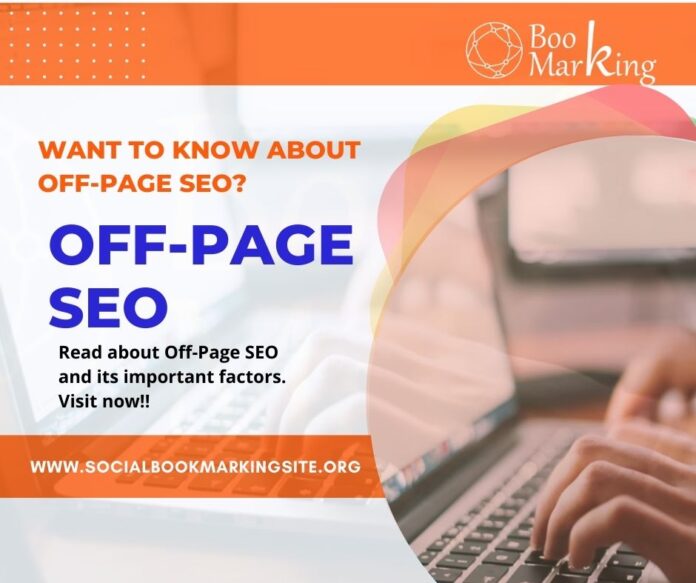Here we wil discuss about Off-page SEO and some important factors or some off-page SEO techniques. First let’s know about what is off-page SEO.
Off-Page SEO refers to the activities which we do outside our website to rank it higher. Off-page SEO should have strategies that you can use outside the boundaries of your website, hence the term ‘off-page’.
It is completely different from On-page SEO.
On-page SEO is related to tasks that you can fully control but with off-page SEO sometimes you are out of it. For example, it is easy to guarantee that the quality of your content is good but you cannot force someone to link to your website unless they want to.
Off-Page SEO Techniques
As mentioned above, Off-page SEO refers to the activities you can do without the restrictions of your website. Some important off-page SEO techniques are:
- Link structure
- Social Media Marketing
- Product Signs
- Customer Reviews
- Link structure
- Link building is a very popular and effective way of Off-Page SEO an SEO company does. Basically, by building links to your website, you are trying to collect as many ‘votes’ as possible, so that you can outdo your competitors and rank high.
For example, if someone likes this article and refers to it on their website or blog, this is like telling search engines that this page has good information.
During the ranking process, search engines will take that into account when deciding which pages to display on the results of the word ‘Off-Page SEO’.
Over the years webmasters have been trying to build links to their websites in order to get higher rankings and ‘establish’ more ways to increase the number of links.
These search engines are ‘forced’ to add additional rules to their algorithms and begin to distinguish between good links and bad links.
Let’s see the difference between the two and why it is important.
What is a bad link?
Bad link is a link that has been generously produced by webmasters for the sole purpose of deceiving search engine algorithms.
The most common examples of bad links are:
Blog posts – something similar to yellow pages but each entry had a link pointing to the website.
Forum Signatures -Some people insert their website or blog link in forum signature and think it will help them, but the reality is it will not. If you are one of them, then stop doing this.
Comment link – Same idea for signing a forum where you can comment on another website or blog to get a link. Worse, instead of using your real name, you can use keywords so instead of writing ‘Alex Chris’ comments, you’ ‘comment with SEO Rules’.
Text Articles – By publishing your articles in article references you can find a link (or 2) back to your website.
Some subject guides only accept unique content while other references accept anything from circulating articles to published articles.
Shared Content References – Websites such as ‘hub pages’ allow you to publish content and in return, you can add a few links to your websites.
Link exchange schemes – Instead of trying to publish content you can contact other webmasters and exchange links. In other words, I can link your website to mine and you can do the same. In some cases you can make a complex exchange by making a 3 way link: I link to your website from my website but you link to my website from a different website.
What is a good link?
So, if the links above do not work, what is the best link? Here is a summary of the key features of good links:
Good links come from trusted websites – One of the basic ideas you need to understand about building links is that it is not just a matter of quantity but of quality as well.
In other words, it is no longer important how many links point to your website but it is very important where these links come from.
For example, a link from a regular blog does not have the same ‘value’ as a link from the New York Times or to any other trusted online website.
Good links from related websites – For a link to have value it must be provided to a related website. For example, if you blog about SEO and get a link from a fashion blog, that one does not have the same ‘value’ as a link from a related blog.
Good links have anchor text – Anchor text is a description of the link text and gives a great clue to search engines what the target page is about. Good links should have anchored anchored text.

